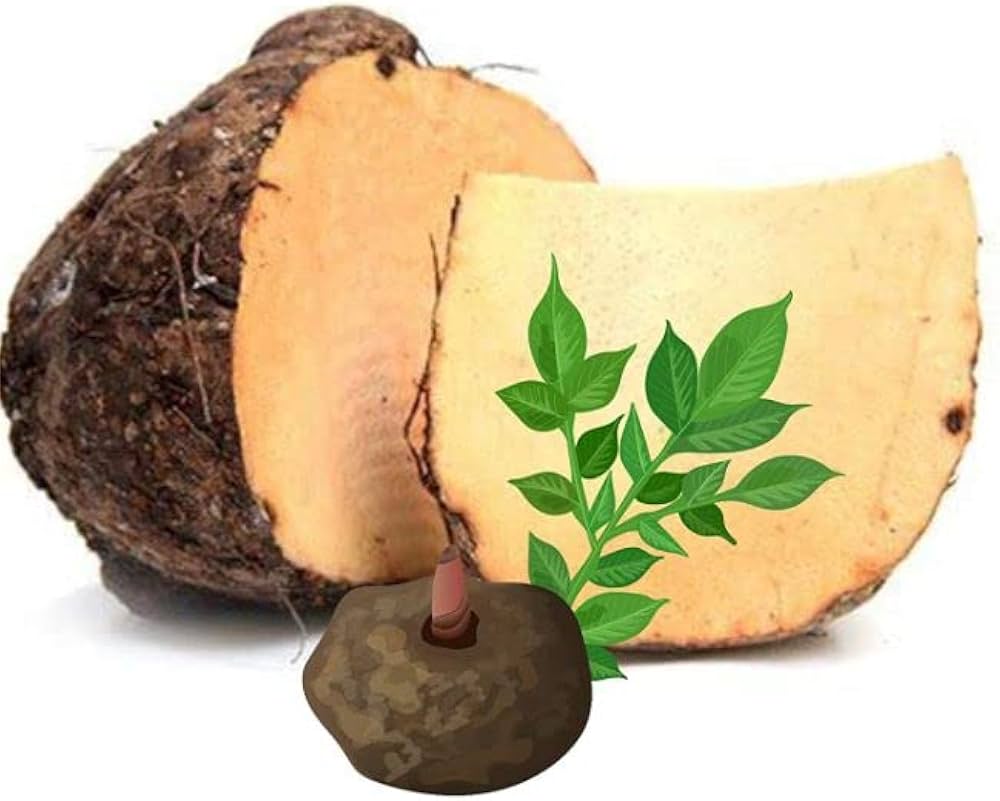Elephant Yam (Suran):
We are premier source for Elephant Yam (Suran) exports from India. We specialize in sourcing and exporting high-quality Elephant Yam to international markets, ensuring that our customers receive fresh, nutritious, and delicious produce straight from the farms of India.
Elephant Yam, scientifically known as Amorphophallus paeoniifolius, is a tuberous root vegetable native to Southeast Asia and extensively cultivated in tropical regions, including India. It is widely appreciated for its unique taste, nutritional benefits, and culinary versatility.

Characteristics:
Appearance: Elephant Yam is characterized by its large, elongated, and irregularly shaped tubers, which can grow up to 1.5 meters in length and weigh several kilograms. The exterior skin is rough and brown, often covered with fibrous roots.
- Texture: When cooked, Elephant Yam has a starchy texture that is somewhat slippery or slimy, making it suitable for thickening soups and stews.
- Nutritional Profile: Elephant Yam is a nutrient-dense vegetable, rich in dietary fiber, vitamins (such as vitamin C and B-complex vitamins), minerals (including potassium, magnesium, and iron), and antioxidants. It is low in calories and fat, making it a healthy addition to various diets.
Culinary Uses:
Elephant Yam is a staple in many Asian cuisines, where it is used in both traditional and modern dishes:
- Soups and Stews: It is commonly used to add texture and nutritional value to soups and stews. The starchy nature of Elephant Yam helps thicken broths, imparting a hearty consistency.
- Fried and Stir-Fried Dishes: In some regions, Elephant Yam is sliced thinly and fried to make crispy chips or used in stir-fried dishes with spices and vegetables.
- Curries and Gravies: It can be diced and added to curries and gravies, absorbing flavors while providing a substantial base to the dish.
Health Benefits:
- Digestive Health: The high fiber content in Elephant Yam promotes digestive health by supporting regular bowel movements and preventing constipation.
- Rich in Potassium: Potassium helps regulate blood pressure and fluid balance in the body, supporting heart health.
- Low Glycemic Index: Elephant Yam has a low glycemic index, making it suitable for individuals managing blood sugar levels.
- Antioxidant Properties: It contains antioxidants like vitamin C and flavonoids, which help neutralize harmful free radicals in the body.
Cultural Significance:
In addition to its culinary uses, Elephant Yam holds cultural significance in various Asian societies. It is often featured in festive meals and celebrations, symbolizing prosperity and good fortune. In some cultures, the tuber is also believed to have medicinal properties, used in traditional herbal remedies for ailments related to digestion and inflammation.
Conclusion:
Elephant Yam is not only valued for its culinary versatility and unique texture but also cherished for its nutritional richness and cultural significance. Whether enjoyed in soups, curries, or stir-fries, Elephant Yam continues to be a beloved ingredient that adds depth and flavor to dishes while offering numerous health benefits.
